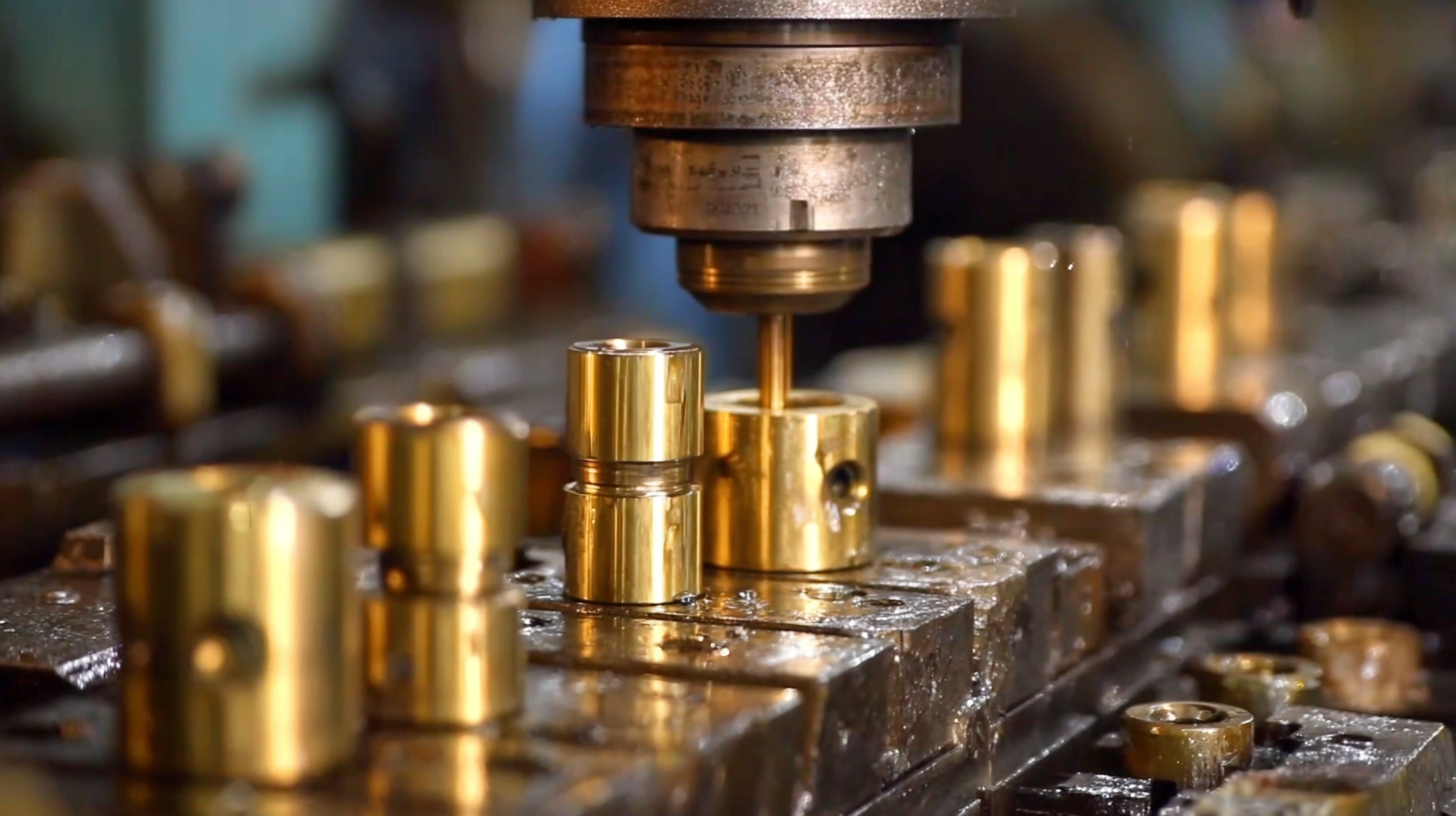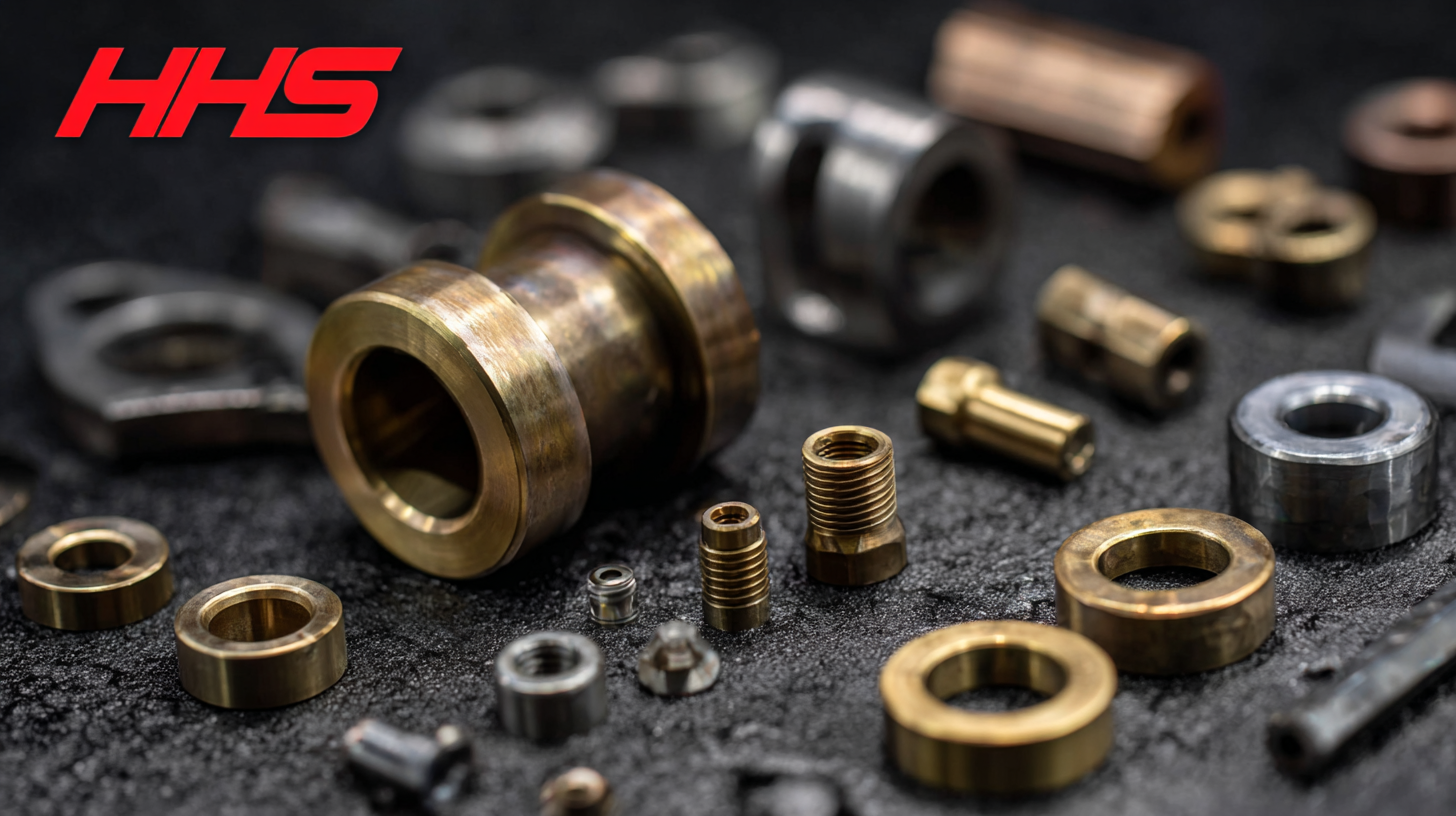Leave Your Message
-
Phone
-
E-mail
The brass forging parts industry is poised for significant transformation by 2025, driven by technological advancements and evolving market demands. According to a recent report by Market Research Future, the global brass forging market is expected to reach USD 3.2 billion by 2025, growing at a CAGR of 4.5%. This growth is attributed to the rising application of brass forging parts in various sectors, including automotive, aerospace, and consumer goods. However, this promising outlook is accompanied by challenges that could hinder the industry's progress. Issues such as fluctuating raw material prices and the need for sustainable manufacturing practices are proving to be critical obstacles.

As we explore the emerging trends and inherent problems associated with brass forging parts, it becomes essential to navigate these complexities to harness the full potential of this industry in the coming years.
In the evolving landscape of the brass forging parts industry, identifying a reliable brass forging manufacturer is essential for ensuring product quality and performance. One of the key characteristics to look for is a manufacturer's commitment to advanced technology and innovative processes. Manufacturers who invest in state-of-the-art machinery and continuous improvement demonstrate their dedication to producing high-quality components that meet precise specifications.

Tips: Look for manufacturers that actively adopt Industry 4.0 practices, such as automation and real-time monitoring, as these advancements enhance efficiency and consistency in production. Additionally, a robust quality assurance program is crucial; it ensures that every aspect of the manufacturing process adheres to established standards.
Another important characteristic is the manufacturer's experience and expertise in the industry. Companies with a long-standing history are often better equipped to navigate challenges and deliver superior products. They likely have experienced engineers who can provide valuable insights and guidance throughout the project.
Tips: When evaluating potential manufacturers, ask about their portfolio and case studies to gauge their problem-solving abilities and track record. A willingness to collaborate and customize solutions is a positive indicator of a manufacturer that prioritizes customer satisfaction.
The brass forging parts industry is rapidly evolving, driven by advancements in manufacturing capabilities and technology. By 2025, the global brass forging market is projected to grow significantly, with a compound annual growth rate (CAGR) of approximately 5.2%, reaching an estimated value of $10 billion. This growth is fueled by the increasing demand for high-quality brass components in diverse sectors, including automotive, electronics, and plumbing. Innovative techniques such as computer numerical control (CNC) machining and automated forging processes are enhancing precision, reducing waste, and improving production efficiency.
Tip: Investing in smart manufacturing technologies can lead to substantial cost savings while increasing output quality. Companies that embrace Industry 4.0 principles, such as real-time data analytics and IoT integration, can optimize their manufacturing processes and adapt swiftly to market demands.
Moreover, the integration of advanced materials and alloy compositions is further shaping the landscape of brass forging. Reports indicate that there is a rising preference for eco-friendly materials that not only enhance durability but also reduce environmental impact. Adopting sustainable practices and exploring alternative materials like lightweight alloys will be crucial for companies aiming to stay competitive in the market.
Tip: Regularly updating your technology stack and training your workforce on the latest manufacturing techniques will position your business at the forefront of industry trends. This proactive approach can ensure your organization remains agile and responsive in a fast-changing environment.
In the brass component production industry, quality assurance processes play a pivotal role in ensuring that finished products meet stringent performance and safety standards. As manufacturers face increasing demands for precision and reliability, implementing robust quality assurance protocols becomes essential. This involves meticulous inspection at every stage of production, from raw material assessment to final testing of forged parts. Advanced technologies, such as automated testing systems and real-time monitoring tools, are increasingly being integrated into production lines to enhance accuracy and reduce human error.
Additionally, collaboration between design engineers and quality assurance teams is crucial in developing innovative brass components. By adopting a proactive approach to quality assurance, manufacturers can identify potential issues early in the design phase, which helps streamline production and minimize defects. Training and certifying personnel on best practices not only fosters a culture of quality but also ensures compliance with international standards. As the brass forging parts industry evolves, embracing comprehensive quality assurance methods will be integral to maintaining competitive advantage and meeting customer expectations in an ever-changing market landscape.
In the evolving landscape of the brass forging parts industry, supplier certifications and industry standards are becoming crucial for fostering trust and ensuring quality. According to a recent report, nearly 70% of organizations believe that adherence to established certifications like ISO/IEC 20243 can significantly mitigate risks associated with the supply chain. Emphasizing these standards not only enhances operational efficiency but also aligns with emerging sustainability practices crucial for future growth.
Tips: To stay ahead, companies should prioritize obtaining relevant certifications to showcase their commitment to quality and security. It's essential to regularly train suppliers on these standards and encourage transparency throughout the supply chain.
Furthermore, the implementation of Green Supply Chain Management (GSCM) principles is gaining traction, as recent studies reveal that adopting such practices can lead to a 10-30% reduction in waste and energy consumption. By integrating GSCM with established supplier certifications, businesses can ensure they are not only compliant but also contributing to a more sustainable industry future.
Tips: Collaborate with your suppliers to share best practices and explore innovative techniques for reducing carbon footprints. Engaging in sustainability initiatives demonstrates a commitment to environmental responsibility that can enhance brand reputation.
| Trend | Description | Supplier Certification | Industry Standard | Best Practices |
|---|---|---|---|---|
| Sustainability | Increasing demand for eco-friendly materials and processes. | ISO 14001 | ASTM B16 | Implementing recycling and waste reduction measures. |
| Automation | Integration of robotics and AI in manufacturing processes. | ISO 9001 | ANSI/ISO/ASQ Q9001 | Continuous training for employees on new technologies. |
| Custom Alloys | Development of specific alloys tailored to consumer needs. | NIST Certification | ISO 683 | Collaboration with clients for bespoke solutions. |
| Digital Twins | Using digital models to optimize manufacturing and maintenance. | TUV Rheinland Certification | VDA 6.3 | Regular updates and simulations for efficiency improvement. |
| Supply Chain Transparency | Emphasis on traceability and ethical sourcing. | SA8000 | ISO 20400 | Regular audits and public reporting on sourcing practices. |
As the brass forging parts industry continues to evolve, the importance of customer support and effective communication in manufacturing partnerships cannot be overstated. In 2025, companies will increasingly prioritize creating seamless experiences for their clients, recognizing that efficient collaboration can significantly impact product quality and delivery timelines. Investing in robust communication channels will allow manufacturers to address client concerns promptly, fostering a sense of trust and reliability.

Moreover, leveraging advanced technologies such as AI and real-time data analytics will enhance customer support systems, enabling manufacturers to predict issues before they arise and provide tailored solutions. This proactive approach not only improves customer satisfaction but also streamlines the entire production process. As manufacturing partnerships become more intertwined, the ability to communicate effectively will be a key differentiator, driving innovation and success in the competitive brass forging market.
